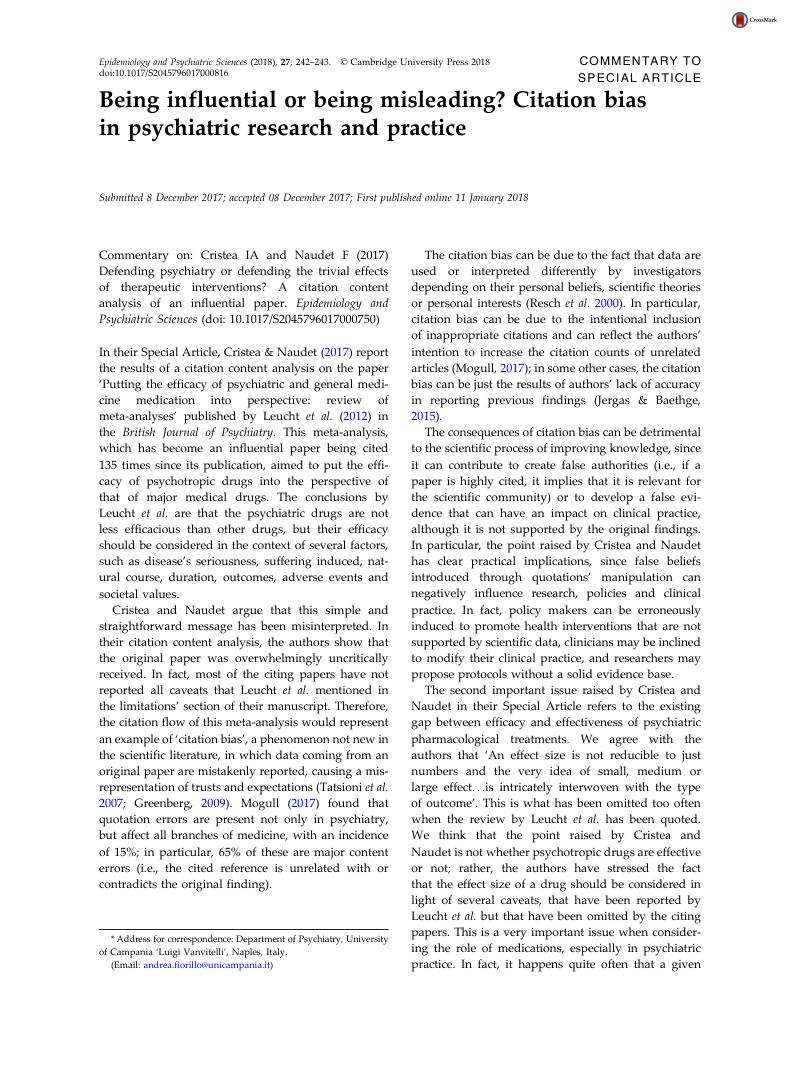Crossref Citations
This article has been cited by the following publications. This list is generated based on data provided by Crossref.
Sampogna, Gaia
Luciano, Mario
Del Vecchio, Valeria
Giallonardo, Vincenzo
Pocai, Benedetta
Pompili, Maurizio
and
Fiorillo, Andrea
2020.
New Directions in Psychiatry.
p.
1.
Sani, Gabriele
and
Fiorillo, Andrea
2020.
The use of lithium in mixed states.
CNS Spectrums,
Vol. 25,
Issue. 4,
p.
449.




Target article
Defending psychiatry or defending the trivial effects of therapeutic interventions? A citation content analysis of an influential paper
Related commentaries (2)
Being influential or being misleading? Citation bias in psychiatric research and practice
The clinical significance of drug-placebo differences